|
Know what’s happening across Oceania—before your coffee’s cold.
OCEANIA MARKETS
|
|
|
|
|
|
ASX 200 and NZX 50 Data Provided By:

|
|
*Market index data sourced from official exchange publications and financial data aggregators. ASX and NZX data reflect end-of-day figures from the Australian and New Zealand stock exchanges respectively. SPX (South Pacific Stock Exchange) figures reflect the most recent published data.
|
|
REGIONAL NEWS
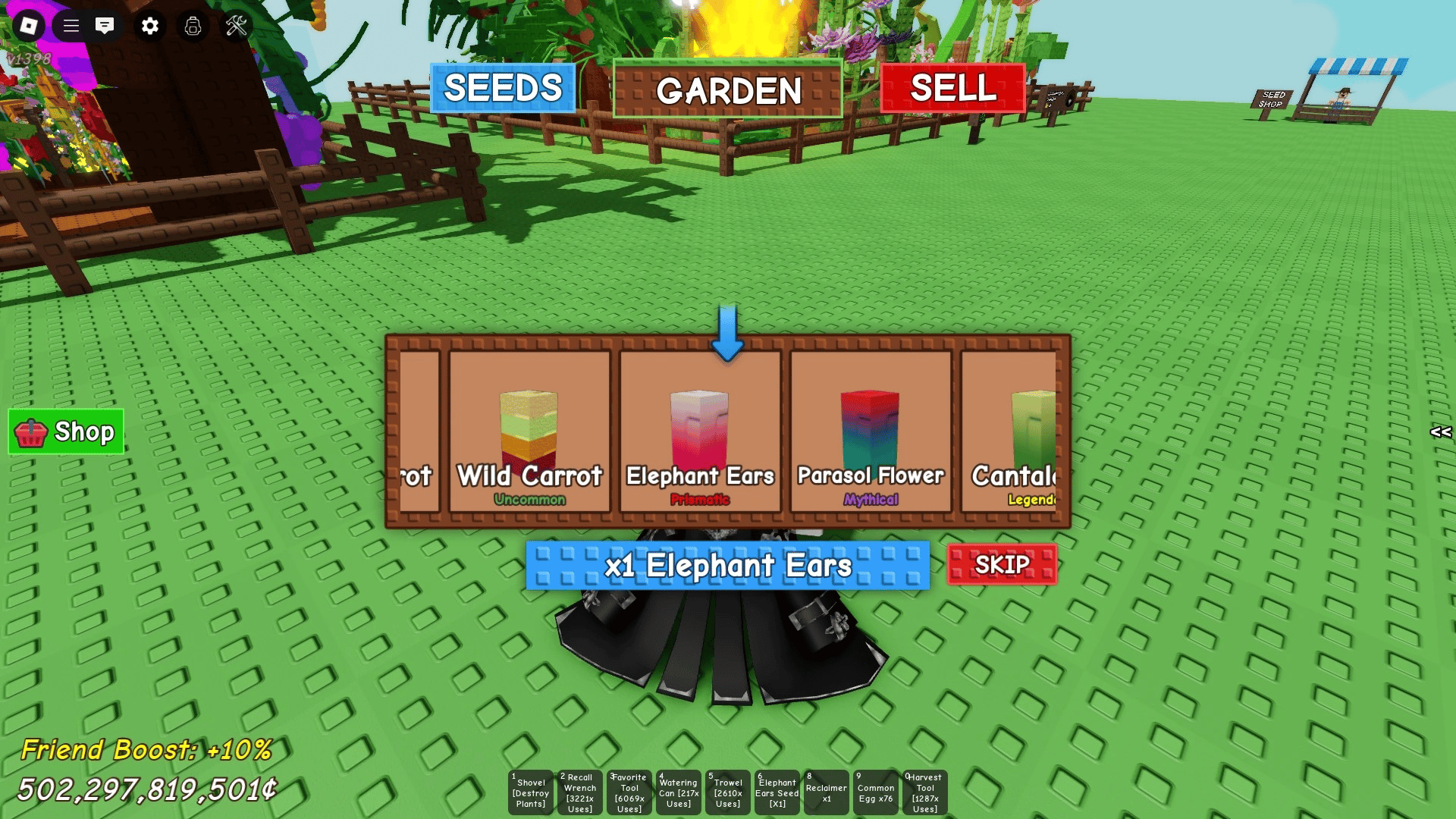
Players tend to their virtual plots in Grow a Garden, the New Zealand-developed Roblox game that broke concurrent player records with over 21 million simultaneous users. Photo Credit: Grow a Garden Fandom.
Kiwi Gardening Game Becomes Global Gaming Phenomenon
|
A simple gardening simulator created by a 16-year-old and developed by a New Zealand studio has become one of the world's most popular games, breaking concurrent player records with over 21 million people playing simultaneously last weekend. Grow a Garden
, hosted on the Roblox platform, has achieved around 9 billion visits since its March launch and surpassed even Fortnite's previous concurrent player records by 5-6 million players. The game originated from Auckland-based Splitting Point Studios
, run by 28-year-old Nelson native Janzen Madsen, who spotted the potential in the teenager's creation when it had just a few thousand users.
|
|
The gameplay itself is refreshingly simple in an era dominated by high-octane shooters and battle royales. Players slowly develop a virtual patch of land, growing exotic plants, harvesting crops to sell, and even stealing from other players' gardens. The experience can be accelerated using Robux, Roblox's
premium currency purchased with real money. What sets Grow a Garden apart from typical mobile farming games is its community-driven development approach and the social interaction built into the platform, allowing millions of players to tend their digital plots simultaneously while interacting with neighbors.
|
|
The success story reflects broader trends in gaming, where passionate developers creating authentic experiences for players often outperform big-budget studio productions focused primarily on monetization. Madsen attributes the game's explosive growth to this philosophy, emphasizing that "this game is run by a bunch of passionate developers that just want to build something for gamers and it's a community." With 35% of players aged 13 and under, Grow a Garden demonstrates how simple, accessible gameplay can capture imaginations across generations, proving that sometimes the most engaging virtual worlds are those that mirror the peaceful satisfaction of real-world gardening.
|
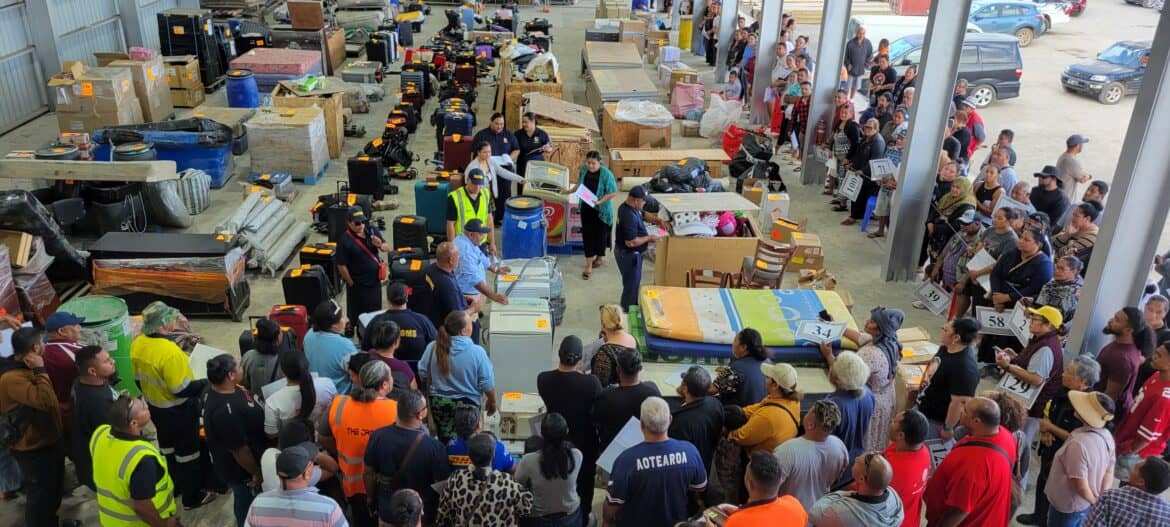
Customs officers oversee auction preparations at Queen Salote Wharf in Nuku'alofa, Tonga, as controversy erupts over the sale of stranded shipments belonging to Tongan families in New Zealand. Photo credit: Tonga Ministry of Revenue & Customs
Tonga Customs Auction Leaves New Zealand Families Devastated
|
Tongan families across New Zealand are expressing heartbreak and fury after the Tonga Ministry of Revenue & Customs
auctioned off their long-delayed shipments at Queen Salote Wharf on June 21, 2025. The auction included vehicles, household goods, electronics, and personal belongings that many families had already paid thousands of dollars to ship from New Zealand. Affected families are directing their anger not at customs officials, but at freight companies they claim deceived them by collecting payment while failing to properly clear goods through Tongan Customs, leaving their precious cargo stranded in storage until it became subject to auction under standard procedures for unclaimed items.
|
|
The Ministry of Customs maintains it followed established protocols for disposing of overdue goods stored in customs-controlled areas, with their official notice listing items including motor vehicles, building materials, household effects, used clothing, and computer supplies. However, the human cost is evident in testimonies from devastated families who describe watching footage of their belongings being sold off despite having paid shipping fees in good faith. One affected woman said that despite multiple attempts to contact her shipping company after payment, she received no response, calling the situation "a scam" after paying tens of thousands of dollars only to see her goods auctioned.
|
PRESENTED BY VONU STUDIOS
Oceanian Animated Videos For Kids: Pawpaw Kids TV
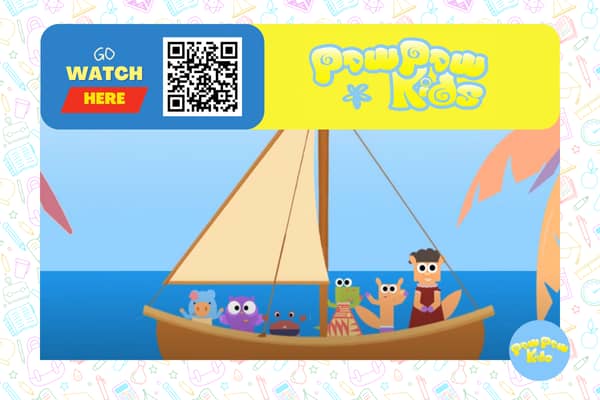
|
Pawpaw Kids TV is a YouTube channel dedicated to engaging and educational content for children, with a specific focus on the Oceanian region. The channel features the Pawpaw Explorers—Illy the Iguana, Mo the Mongoose, and other animated characters—who embark on adventures that introduce young viewers to local wildlife, ocean currents, and cultural stories.
|
Pawpaw Kids TV offers a Pacific blend of entertainment and learning, making it a valuable resource for children to explore the rich cultures and natural wonders of the Oceania region. Simply scan the QR code to visit the Pawpaw Kids TV YouTube channel or click this link:
YouTube Link: Pawpaw Kids TV
|
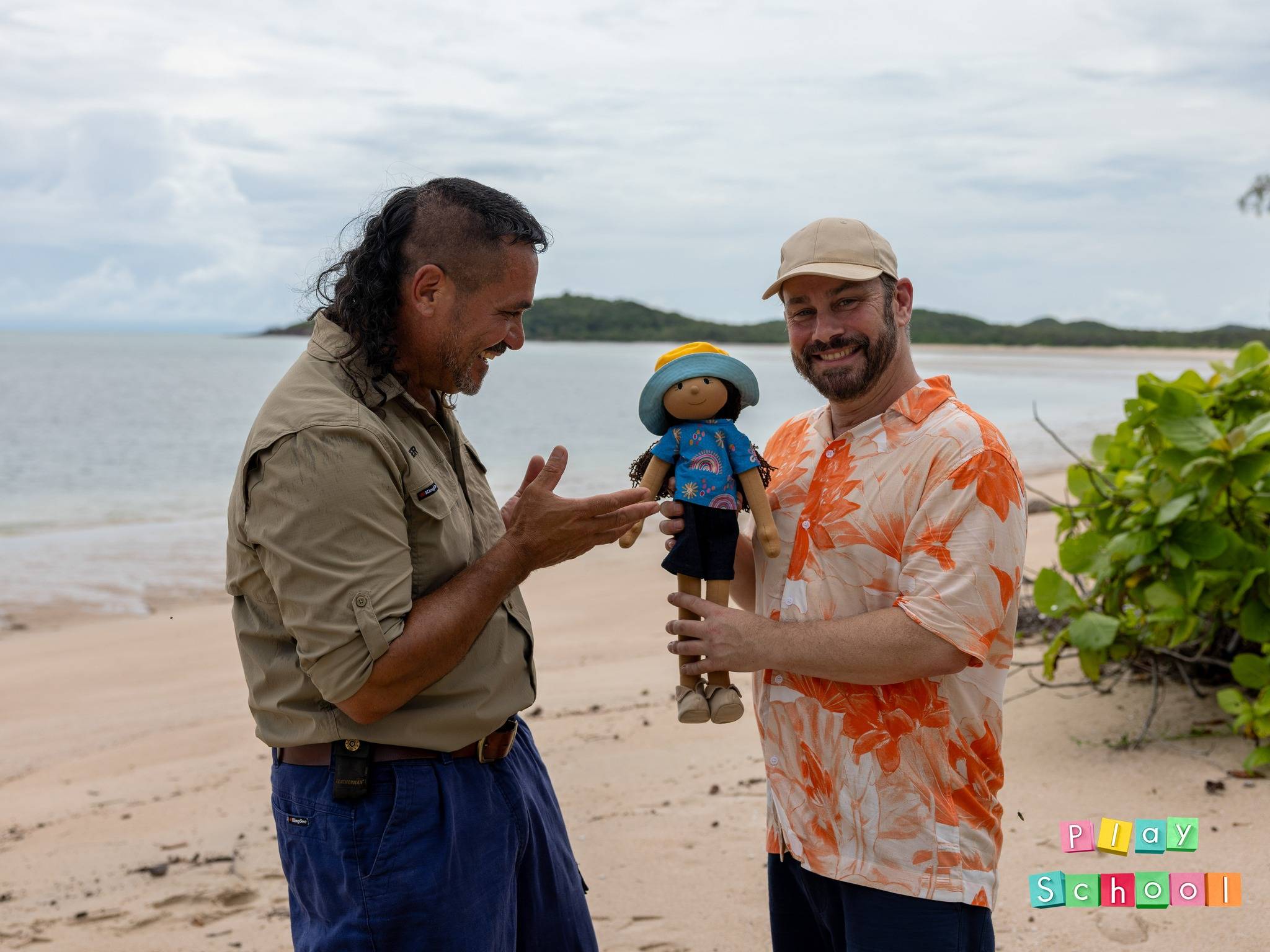
Play School presenter Teo Gebert and TSRA Ranger Supervisor Laurie Nona pose with Kiya doll during the historic filming of "Island Life" on Badu Island, marking the first time the beloved children's program has showcased Torres Strait Islander culture and traditions. Photo Credit: Torres Strait Regional Authority
Play School Makes History with First Torres Strait Island Episode
|
ABC's beloved Play School
has filmed its first-ever episode in the Torres Strait, marking a significant milestone in Indigenous representation on the iconic program. Presenter Teo Gebert, along with beloved toys Jemima and Kiya, traveled to Badu Island, located 60km north of Thursday Island, to create "Island Life," the third episode of the new My Place, My Home series. This historic production was made possible through a partnership with the Torres Strait Regional Authority (TSRA), showcasing the rich cultural heritage of Zenadth Kes (Torres Strait) to young audiences across Australia for the first time.
|
|
The episode highlights the unique cultural practices, landscapes, and wildlife of Badu Island, with particular focus on the Kawral Waleck (frilled-neck lizard) and its sacred place in Torres Strait Islander mythology and traditional storytelling. Local heroes emerged from the production, including TSRA Ranger Supervisor Laurie Nona and Ranger Nabako Laza from the Mura Badhulgau Rangers, who became television stars while sharing their deep knowledge of country and culture. The Rangers program combines traditional knowledge with Western science to care for land, sea and culture, providing an authentic educational foundation for the episode's content about environmental stewardship and cultural connection to country.
|
|
This collaboration represents more than just television programming—it's a celebration of Torres Strait Islander identity and an investment in cultural preservation for future generations. The filming was proudly supported by TSRA's Culture, Art and Heritage and Environmental Management programs, demonstrating the community's commitment to sharing their stories on their own terms. Badu Island has recently gained international recognition, making it onto Forbes' top fifty places to visit and putting the region on the global tourism map, but this Play School episode ensures that the island's cultural significance reaches Australian families nationwide. The episode is now available on ABC iview, allowing children across the country to learn about Torres Strait Islander traditions, environmental wisdom, and the enduring connection between people and place that defines life in Australia's northernmost waters.
|
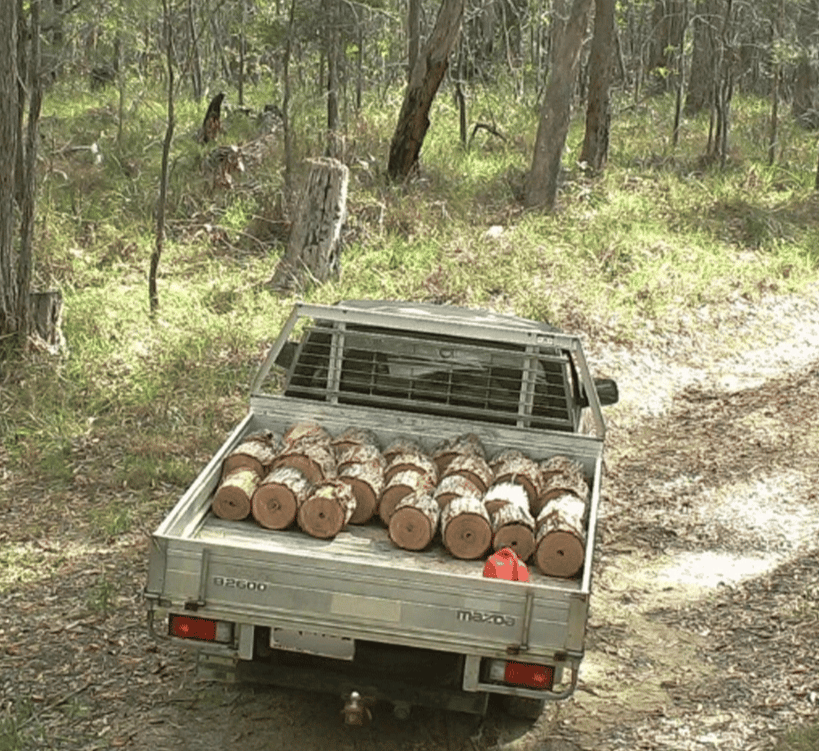
A ute driver was caught on wildlife monitoring cameras loading logs from a Queensland national park, an illegal act that can result in fines up to $137,850 and highlights the ongoing threat to protected ecosystems from timber theft. Photo credit: Queensland National Parks
Wildlife Cameras Expose Costly National Park Tree Theft
| Wildlife monitoring cameras have caught a ute driver red-handed loading logs from a Queensland national park, prompting authorities to issue stark warnings about penalties that can reach $137,850 for first-time offenders. Queensland's National Parks department emphasized that "everything within a national park and state forest is protected," whether live or dead trees, as they reminded Australians that taking firewood from protected areas is illegal nationwide. The department stated they "speak for the trees" when reinforcing that all vegetation plays a crucial role in protected ecosystems, with on-the-spot fines starting at $1,378 and court penalties escalating to $413,550 for repeat offenses.
|
|
The seemingly harmless act
of collecting fallen timber actually causes significant ecological damage that many Australians don't realize. Dead logs, branches and leaf litter serve as critical habitats for insects, fungi, mosses, and lichens, which support birds, reptiles, and small mammals, while their removal destroys vital shelter and breeding grounds essential for ecosystem health. Live trees provide even more critical functions, with their removal destroying habitat, disturbing native species, and compromising natural erosion barriers and water quality protection. Recent enforcement actions demonstrate authorities' commitment to protecting these ecosystems, including a $15,000 fine imposed on a man who felled 113 old-growth trees in Rinyirru National Park and a $30,000 penalty for someone clearing firewood in NSW's Murrumbidgee Valley.
|
|
Every fallen branch, rotting log, and standing tree plays a role in nutrient cycling, habitat provision, erosion control, and carbon storage, making their removal a significant threat to decades of conservation work. Similar strict penalties exist across Australia, with NSW fines reaching up to $1.1 million through the Land and Environment Court and various state authorities using camera surveillance to catch illegal activities. The message from conservation officials is clear: what might appear as harmless scavenging actually represents theft from some of Australia's most precious and carefully protected natural heritage, with legal consequences designed to match the serious environmental damage caused.
|
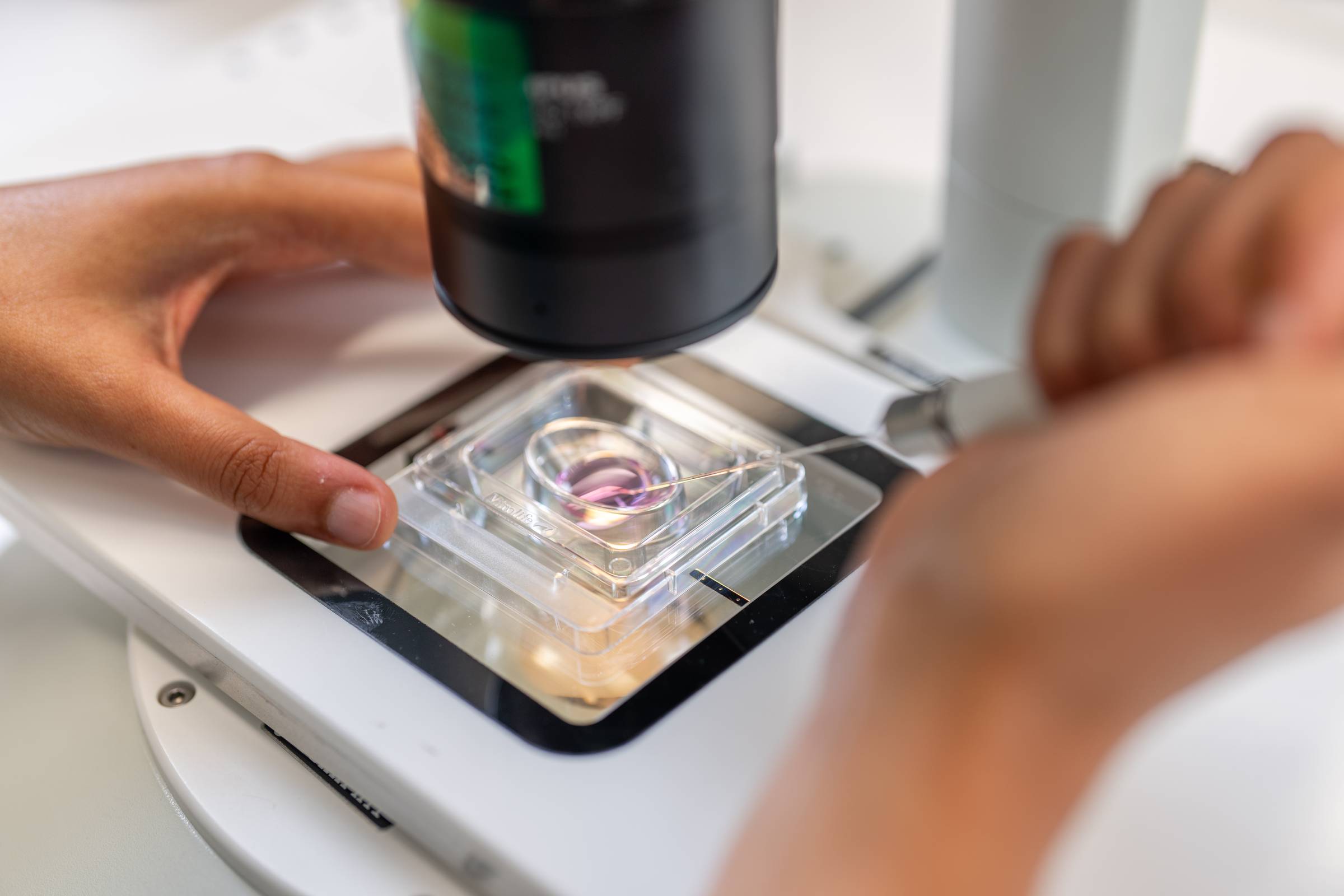
Two separate embryo mix-up incidents at Monash IVF clinics have sparked investigations, leadership changes, and calls for stronger national regulation to protect families undergoing assisted reproduction. Photo credit: Monash IVF
Major IVF Embryo Mix-Ups at Monash IVF Shake Australia’s Fertility Sector
|
The Australian fertility sector has been rocked by two major embryo mix-ups at Monash IVF
, one of the country’s largest assisted reproduction providers. In April, a woman at the company’s Brisbane clinic was mistakenly implanted with another patient’s embryo, an error only discovered months later when the birth parents requested their remaining embryos be transferred to another provider. The incident, attributed by Monash IVF to “human error,” led to the birth of a child to the wrong family and triggered an independent review led by barrister Fiona McLeod. The company apologized, insisting it was an isolated event, but the gravity of the mistake has left lasting distress for the families involved.
|
|
Shockingly, a second mix-up was revealed in June at Monash IVF’s Clayton clinic in Melbourne, where a patient received her own embryo instead of her partner’s, again due to procedural error. These back-to-back failures prompted the resignation of CEO Michael Knaap and sent the company’s shares tumbling as public confidence wavered. The Victorian Health Regulator has launched a rapid review, and calls are mounting for a national regulator to enforce stricter oversight and prevent such tragedies in the future. Industry experts and bioethicists have described the incidents as a “great human tragedy,” emphasizing that such errors must become impossible, not merely rare.
|
|
The fallout extends beyond Monash IVF, raising urgent questions about the adequacy of current regulations and the emotional toll on affected families. While industry representatives stress that such mix-ups are extremely rare, the incidents have exposed vulnerabilities in clinic protocols and the fragmented nature of Australia’s IVF oversight, which varies by state. As investigations continue, Monash IVF has pledged to support the families and implement additional verification measures. However, the sector now faces a critical reckoning, with demands for unified national standards to restore trust and ensure that every family’s IVF journey is protected from preventable error.
|
Guam Takes a Major Step to Improve Medicaid Access with New Legislation
|
Guam has made a significant stride toward strengthening its healthcare system with the recent signing of the Guam Medicaid Access Enhancement Act into law by Governor Lou Leon Guerrero. This pioneering legislation, the first authored by Senator Sabrina Salas Matanane during the 38th Guam Legislature, aims to tackle a persistent challenge: the low participation of healthcare providers in the Medicaid program due to inadequate reimbursement rates. By introducing Business Privilege Tax rebates for clinics and medical professionals who serve Medicaid patients, the law seeks to incentivize providers to accept more Medicaid enrollees, thereby expanding access to essential health services for over 40,000 residents.
|
|
The issue of Medicaid
provider shortages is not unique to Guam; it is a widespread concern across U.S. territories and rural areas, where low reimbursement rates and administrative burdens often discourage doctors and dentists from participating. According to a 2023 report by the Kaiser Family Foundation, provider participation in Medicaid programs nationally remains uneven, directly impacting patient access and health outcomes. Guam’s new law aligns with broader efforts to improve healthcare equity by reducing financial barriers for providers. Senator Matanane emphasized that investing approximately $4 million annually in these incentives is a prudent move, as it could reduce costly emergency room visits and improve preventive care. The law has garnered bipartisan support from Guam’s legislature and reflects a collaborative approach to addressing healthcare disparities on the island.
|
SPORTS
Minjee Lee Clinches Third Major Title with Dominant Win at 2025 Women’s PGA Championship

Minjee Lee celebrates her historic third major victory at the 2025 KPMG Women’s PGA Championship in Frisco, Texas, overcoming tough heat and wind conditions to secure a three-shot win and join Australia’s golfing elite. Photo Credit: Screengrab NBC Sport
|
Australian golf star Minjee Lee has delivered a stunning performance at the 2025 Women’s PGA Championship, capturing one of the most prestigious titles in women’s golf. Held at the Baltusrol Golf Club in New Jersey, Lee’s composed and consistent play over four rounds earned her a well-deserved victory, marking her second major championship win. Her triumph not only highlights her exceptional skill and mental toughness but also underscores Australia’s growing prominence on the global women’s golf stage. Lee’s win was celebrated widely, as she overcame a competitive field featuring many of the world’s top-ranked players.
|
|
Throughout the tournament, Lee demonstrated remarkable precision and resilience, particularly in the final round where she maintained steady scoring despite challenging course conditions and mounting pressure. Her ability to navigate Baltusrol’s demanding layout, known for its fast greens and strategic bunkering, showcased her strategic approach and adaptability. This victory adds to her impressive career résumé, which includes multiple LPGA Tour
wins and a reputation for clutch performances in major events. Golf analysts have praised Lee’s balanced game, combining power and finesse, which continues to evolve and set her apart from her peers.
|
|
Minjee Lee’s success at the Women’s PGA Championship also carries broader significance for women’s golf in Australia and internationally. As one of the sport’s leading figures, she inspires a new generation of golfers, particularly young women aspiring to compete at the highest levels. Her win contributes to raising the profile of women’s golf, attracting greater media attention and sponsorship opportunities. With this major championship under her belt, Lee is poised to be a dominant force in upcoming tournaments, further elevating her status as a role model and ambassador for the sport.
|
SPOTLIGHT
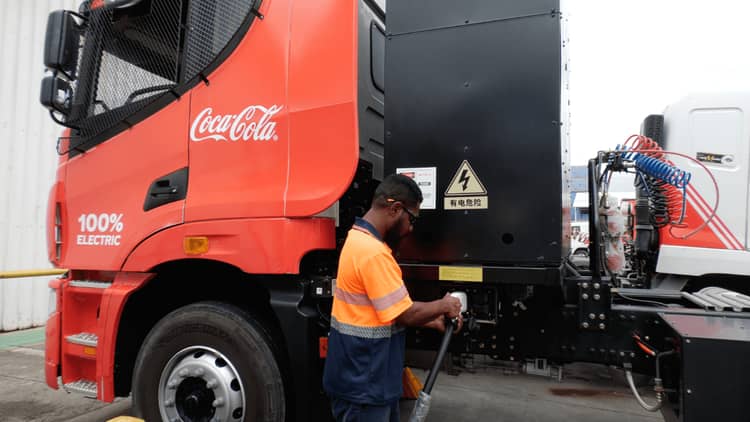
Coca-Cola Europacific Partners PNG and Express Freight Management have launched Papua New Guinea’s first-ever electric truck fleet, promising major cost savings and a greener future, but not without challenges. Photo credit: TWAN
PNG’s First Electric Truck Fleet Hits the Road: A Bold Move Toward Sustainable Transport
|
Papua New Guinea has taken a major step toward sustainable transport with the launch of its first-ever electric truck fleet, a partnership between Coca-Cola Europacific Partners
PNG and Express Freight Management. This initiative positions PNG at the forefront of green logistics in the Pacific, aiming to reduce carbon emissions and modernize fleet operations. Supporters of this shift highlight not only the environmental benefits but also substantial cost savings, as electricity in PNG is currently estimated to be 30–50% cheaper than diesel when factoring in fuel prices and production costs. For large logistics operators like Coca-Cola, this transition could translate into significant operational savings, especially over long distances—charging an electric truck for 1,000 kilometers is likely to cost far less than fueling a diesel truck for the same journey.
|
|
Advocates for electric vehicles (EVs) in PNG argue that the technology is well-suited to the country’s needs, particularly in urban centers like Port Moresby where daily driving distances are manageable and charging can be done overnight using standard 240-volt outlets. Operational and servicing costs are also lower, as EVs have fewer moving parts and require less maintenance—no clutches, gearboxes, or oil filters, which are prone to wear in PNG’s challenging conditions. International research supports these claims: studies show that medium- and long-haul electric trucks are already about 13% cheaper to own than diesel trucks, with potential savings nearing 50% by 2030 as battery prices continue to fall and technology improves. Environmental advocates further point out that electrifying truck fleets will help reduce air pollution and greenhouse gas emissions, aligning PNG with global sustainability trends.
|
| However, there are significant challenges and criticisms. PNG’s electricity sector is currently under severe strain, with PNG Power Limited operating at a substantial loss, burdened by aging infrastructure, widespread power theft, and frequent outages. The state-owned utility reportedly loses K25 million a month and is heavily subsidized by taxpayers, raising questions about the long-term sustainability of low electricity prices. Furthermore, PNG’s electricity tariffs are among the highest in the world—nearly US$0.50 per kilowatt-hour in some areas—posing a risk that future price hikes or supply instability could erode the cost advantages of EVs. Businesses in some regions have already resorted to running their own generators due to unreliable grid power, which could undermine the environmental and economic rationale for electric trucks if widespread adoption increases grid demand without corresponding infrastructure upgrades.
|
| Skeptics also caution that while early adopters like Coca-Cola may enjoy initial savings, the broader rollout of EVs in PNG will require substantial investment in charging infrastructure, grid reliability, and public education to overcome skepticism and technical barriers. Without coordinated government policy and investment, the benefits of electrification could be limited to a handful of large companies, rather than driving systemic change across the transport sector. Ultimately, while PNG’s electric truck fleet marks a bold and promising start, the long-term success of EV adoption will depend on addressing deep-seated challenges within the country’s energy sector and ensuring that cost savings and environmental benefits are sustainable for all stakeholders.
|
REGIONAL EVENTS
-
Pacific Mini Games 2025
| Event |
Date |
Location |
Details |
| Games Village Opens |
Thursday, 26 June 2025 |
Koror, Palau |
Athletes begin arriving and settling into the Games Village. |
| Opening Ceremony |
Sunday, 29 June 2025 |
Koror, Palau |
Colorful celebration marking the start of the Pacific Mini Games. |
| Competitions |
30 June – 9 July 2025
Rest Day: 6 July
|
Various venues in Koror, Airai, Melekeok, Ngiwal |
Sports include Athletics, Baseball, Triathlon, Swimming, Weightlifting, Judo, Wrestling, Table Tennis, Va‘a, Beach & Indoor Volleyball, Softball, and Archery.
|
| PGC General Meeting |
Sunday, 6 July 2025 |
Koror, Palau |
Meeting of the Pacific Games Council during the competition period. |
| Closing Ceremony |
Wednesday, 9 July 2025 |
Koror, Palau |
Final event including medal celebrations and cultural performances. |
|
|
